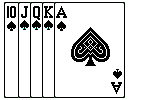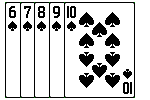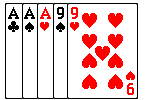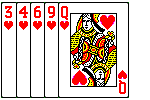 |
|
* Tuesday - 8th Jul 2025 - 06:55 *
| Poker Crush Forums | |||||
|---|---|---|---|---|---|
|
|||||
|
Poker Crush Forums - The Latest Freerolls and Poker Tournaments Best Online Poker Bonuses * Tuesday - 8th Jul 2025 - 06:55 * |
April, 2016 Poker Thinking Contest CLOSED |
|
| Poker Crush Forums Forum Index » The Archive | Goto page 1, 2 Next |
| Author | Message | ||||||||||||||||
|---|---|---|---|---|---|---|---|---|---|---|---|---|---|---|---|---|---|
| OrangeCrush Royal PCer  Joined: 04 Aug 2005 Posts: 1253 Location: Salt Lake City, Utah  138565 138565 2000 2000 0 0 1500.00 1500.00 |
|
||||||||||||||||
| shirlsplay Royal PCer  Joined: 17 Sep 2009 Posts: 2954  985336 985336 2000 2000 0 0 1500.00 1500.00 |
|
||||||||||||||||
| win4maw Royal PCer  Joined: 25 Jul 2005 Posts: 6338  17727240 17727240 2000 2000 0 0 1500.00 1500.00 |
|
||||||||||||||||
| Bower50 Royal PCer  Joined: 26 Jul 2006 Posts: 3276 Location: Canada  193800 193800 2000 2000 0 0 1500.00 1500.00 |
|
||||||||||||||||
| OrangeCrush Royal PCer  Joined: 04 Aug 2005 Posts: 1253 Location: Salt Lake City, Utah  138565 138565 2000 2000 0 0 1500.00 1500.00 |
|
||||||||||||||||
| shirlsplay Royal PCer  Joined: 17 Sep 2009 Posts: 2954  985336 985336 2000 2000 0 0 1500.00 1500.00 |
|
||||||||||||||||
| Bower50 Royal PCer  Joined: 26 Jul 2006 Posts: 3276 Location: Canada  193800 193800 2000 2000 0 0 1500.00 1500.00 |
|
||||||||||||||||
| anneandalan PC Player  Joined: 06 Dec 2007 Posts: 822 Location: Scottsdale  169810 169810 2000 2000 0 0 1500.00 1500.00 |
|
||||||||||||||||
| r8er4ever PC Boater  Joined: 27 Jan 2010 Posts: 212  80886 80886 2000 2000 0 0 1500.00 1500.00 |
|
||||||||||||||||
| queenmap PC Flusher  Joined: 09 Feb 2014 Posts: 161  3866 3866 2000 2000 0 0 1500.00 1500.00 |
|
||||||||||||||||
| OrangeCrush Royal PCer  Joined: 04 Aug 2005 Posts: 1253 Location: Salt Lake City, Utah  138565 138565 2000 2000 0 0 1500.00 1500.00 |
|
||||||||||||||||
| win4maw Royal PCer  Joined: 25 Jul 2005 Posts: 6338  17727240 17727240 2000 2000 0 0 1500.00 1500.00 |
|
||||||||||||||||
| CATLICKER Royal PCer  Joined: 06 Dec 2010 Posts: 1263 Location: So Cal  228321 228321 2000 2000 0 0 1500.00 1500.00 |
|
||||||||||||||||
| shirlsplay Royal PCer  Joined: 17 Sep 2009 Posts: 2954  985336 985336 2000 2000 0 0 1500.00 1500.00 |
|
||||||||||||||||
| queenmap PC Flusher  Joined: 09 Feb 2014 Posts: 161  3866 3866 2000 2000 0 0 1500.00 1500.00 |
|
||||||||||||||||
| Poker Crush Forums Forum Index » The Archive | Goto page 1, 2 Next |
phpBB © 2001, 2025 phpBB Group :: No Deposit Bonus Needed Casinos
0/6/1527
April, 2016 Poker Thinking Contest CLOSED - Best Poker Forum
All times are GMT
No Deposit Casino Bonuses - Best Casino Bonuses Online - Best RTG Casinos - Free Chips Bonuses - no deposit poker bonuses - No Deposit Bingo Bonuses
Play Online Casino Games for Real Money
Casino Competitions - Gambling Bonus Directory - Best Casino Reviews - Free Casino Bonuses